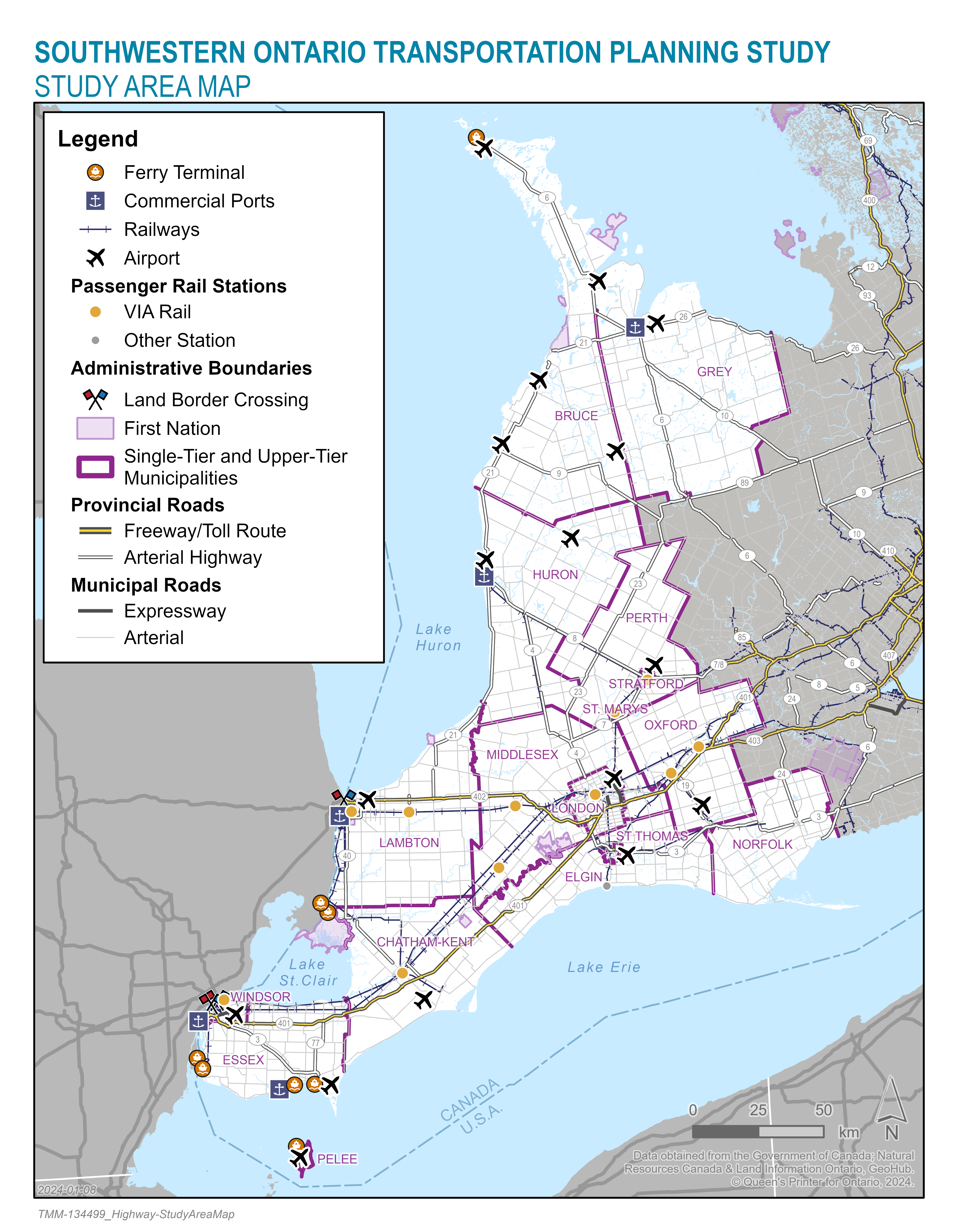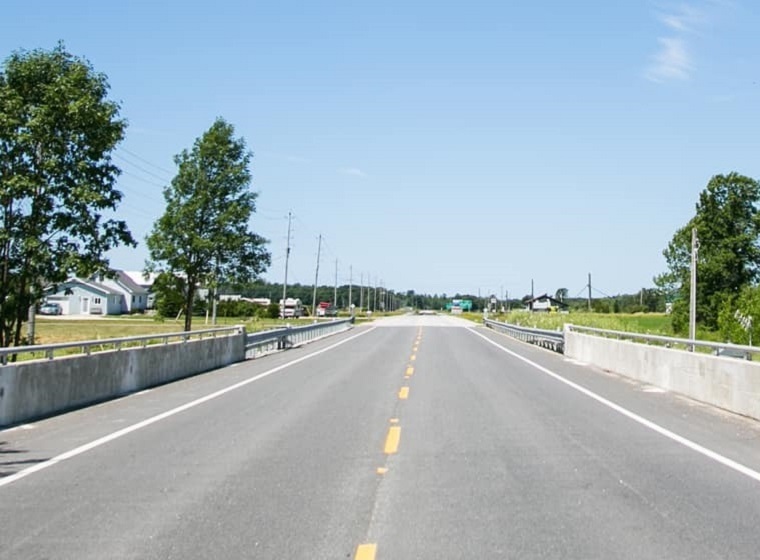About Southwestern Ontario
Southwestern Ontario is home to more than 1.6 million people and thriving manufacturing, health care and agricultural sectors. It is also one of the busiest international trade corridors in North America. The region has a transportation system made up of local roads, provincial highways, trains and buses, ferries, local and international airports, cycling trails and pedestrian walkways.
Ontario has a plan that will support a globally competitive economy, connect communities across the region and get people and goods moving.

Map of the Southwestern Ontario transportation planning study. View a larger version of this map (PNG).
Our plan
A safe, efficient and connected transportation network is critical for a healthy and prosperous Ontario.
In January 2020, we released Connecting the Southwest: A Draft Transportation Plan for Southwestern Ontario, which includes 43 improvements and strategies for public transit, rail, highways and more to:
- get people moving and connect communities
- support a competitive open for business environment
- improve safety
- provide more choice and convenience
- prepare for the future
The draft transportation plan is a living document that will continue to evolve.
Transportation planning study
To ensure Southwestern Ontario’s transportation system is responsive to the province’s changing landscape, including projected population growth, emerging technologies and the impacts of climate change, we are conducting a long-range transportation planning study that will:
- identify current and future transportation needs and opportunities
- determine the most effective actions to meet these needs
- find ways to implement the actions
- build upon the draft transportation plan by further refining our vision of Southwestern Ontario to take us to the year 2051
There are 4 phases to the study:
Phase 1. Set goals and objectives for the long-range plan and determine how to measure success. Also develop forecasts of population and employment growth and consider future expected impacts from climate change.
Phase 2. Undertake technical analysis to understand the different needs and opportunities for different modes of transportation (driving, public transit, ferries, trains, etc.), both now and in the future.
Phase 3. Identify potential actions to include in the long-range plan and evaluate which ones to recommend implementing.
Phase 4. Consolidate the findings in a recommended long-range transportation plan for the region that will support government decision-making.
Public input and engagement
To ensure the planning study reflects local understanding of the transportation system in southwestern Ontario, Indigenous communities, municipalities, transportation stakeholders, and the public will have opportunities to provide their input through the process.
You will be able to provide feedback at different phases of the project, such as:
- commenting through the Environmental Registry of Ontario
- public surveys
If you have any questions about the study and how to get involved, please contact us by email at swplan@ontario.ca
Previous engagement
Southwestern Ontario Transportation Task Force
As part of the actions set out in Connecting the Southwest, we established the Southwestern Ontario Transportation Task Force to ensure regional transportation planning in southwestern Ontario is informed by local needs and priorities.
Members of the task force included:
- chiefs from Indigenous communities
- southwestern mayors
- representatives and leaders from organizations with an interest in local and regional transportation
Discussions focused on improving connections between different modes of transportation such as rail, intercommunity bus and local transit services across the region.
Public input on the draft plan
In winter 2020, we posted the draft plan on the Environmental Registry of Ontario and conducted the Southwest transportation survey to learn about your travel behaviour, challenges and the areas you would like to see improvements. Over 1,400 people shared feedback on the draft plan to help us understand what priorities are most important.
The key themes that emerged for improving regional transportation were:
- more affordable, reliable, and frequent local transit, intercommunity bus, passenger rail and ferry services
- less gridlock and shorter travel times on provincial highways and local roads
- more transportation options in rural and remote communities to connect to other communities, services, education and employment
- improvement to road safety, including the safety of passenger and commercial vehicles, and active travelers (for example, pedestrians and cyclists)
- faster delivery of transportation projects with more public information on project status and completion deadlines
We thank everyone who took the time to submit comments or complete the survey and share their valuable insights.
